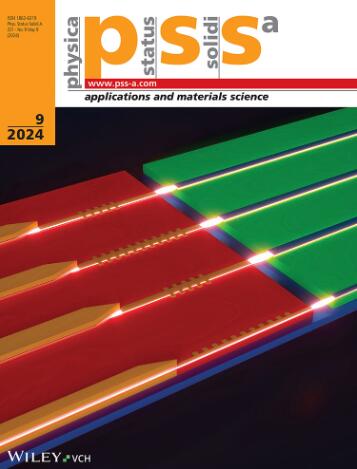Major and Trace Element Composition Differences Revealed in Porcine Intestine by Dynamic Analysis and MeV Ion Microscopy
IF 1.9
4区 材料科学
Q3 MATERIALS SCIENCE, MULTIDISCIPLINARY
Physica Status Solidi A-applications and Materials Science
Pub Date : 2024-08-13
DOI:10.1002/pssa.202400161
引用次数: 0
Abstract
Physiologically relevant concentrations in biological tissue, in the in vivo, state are of the order of μmol L通过动态分析和 MeV 离子显微镜揭示猪肠中主要元素和微量元素的组成差异
生物组织在体内状态下的生理相关浓度为微摩尔升/升或毫摩尔升/升。尽管基质中的主要元素及其厚度对较少元素和痕量元素浓度的量化非常重要,但迄今为止,基质中主要元素及其厚度的绘图一直被忽视。Ryan 和 Jamieson 开发的动态分析、统计光谱分解方法可对使用冷冻显微切片机切割的活体组织切片进行定量测量。这缓解了物理分析方法需要真空环境的问题。该方法用于对猪肠组织切片中的主要基质元素 H、C、N 和 O 以及钙、铁和锌的痕量图进行定量成像。之所以选择该样本,是因为其形态复杂,具有多个组织区划(如肌肉和粘膜,以及来自血管、淋巴管、窦隐窝和绒毛的空隙区域)。研究结果表明,不同类型的组织会有不同的基质成分和厚度。利用这些信息,可以获得较少元素和微量元素钙、铁和锌的定量图谱和元素摩尔数。
本文章由计算机程序翻译,如有差异,请以英文原文为准。
求助全文
约1分钟内获得全文
求助全文
来源期刊
CiteScore
3.70
自引率
5.00%
发文量
393
审稿时长
2 months
期刊介绍:
The physica status solidi (pss) journal group is devoted to the thorough peer review and the rapid publication of new and important results in all fields of solid state and materials physics, from basic science to applications and devices. Among the largest and most established international publications, the pss journals publish reviews, letters and original articles, as regular content as well as in special issues and topical sections.

 求助内容:
求助内容: 应助结果提醒方式:
应助结果提醒方式:


